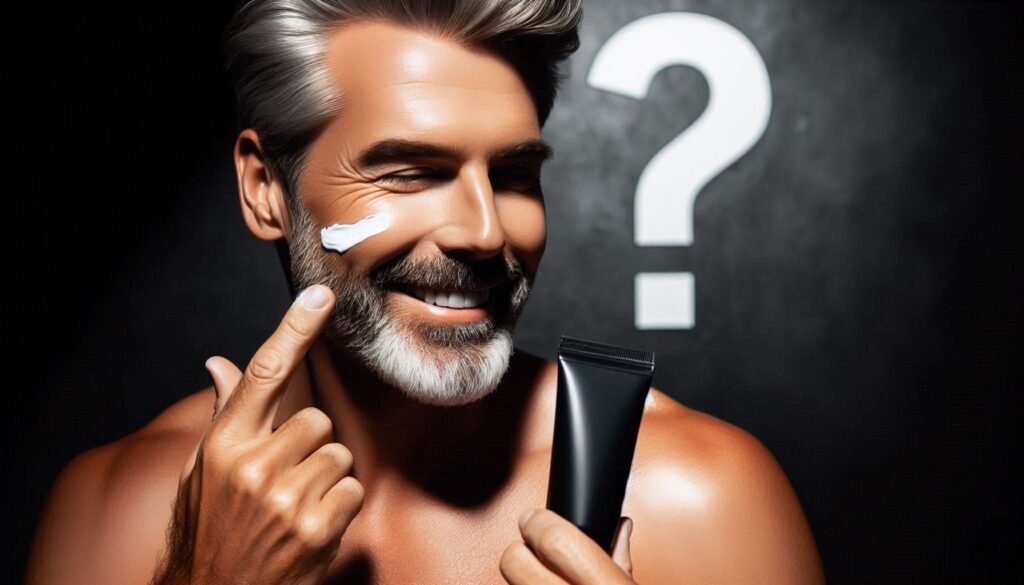
Table Of Contents:
(Click And Go Directly)
As we age, our skin goes through various changes that require special attention. Mature skin often becomes thinner, drier, and more prone to damage. That’s why choosing the right sunscreen is crucial to protect and maintain its health.
In this guide, we will explore how to select the best sunscreen for mature skin, ensuring you can enjoy the sun safely while keeping your skin looking vibrant and youthful.
1. What Is Mature Skin?
Mature skin refers to skin that has aged due to a combination of intrinsic factors (like genetics and hormonal changes) and extrinsic factors (such as sun exposure, pollution, and lifestyle choices). Typically associated with individuals in their 40s and older, mature skin often exhibits characteristics such as dryness, fine lines, loss of elasticity, and an uneven skin tone. It requires specific care to maintain moisture, elasticity, and overall health.
Key Characteristics Of Mature Skin:
- Increased Dryness: Often lacks moisture.
- Fine Lines, Wrinkles: More noticeable, especially around the eyes and mouth.
- Loss of Elasticity: Skin may sag due to reduced collagen.
- Thinner Texture: Becomes more fragile and prone to damage.
- Uneven Skin Tone: Age spots and hyperpigmentation are common.
- Decreased Oil Production: This leads to dryness and a dull appearance.
- Increased Sensitivity: More prone to irritation and requires gentle products.
2. Why Sunscreen Is Important For Mature Skin?

For all skin types, sunscreen is essential to protect against harmful ultraviolet (UV) rays. However, it’s especially crucial for mature skin because:
- Protects Against UV Damage: UV rays can accelerate skin aging, causing wrinkles, fine lines, and dark spots. A good sunscreen protects against these harmful effects.
- Prevents Skin Cancer: Regular sunscreen use reduces the risk of skin cancer, which is especially important for mature skin that may have already experienced sun damage.
- Maintains Skin Hydration: Many sunscreens are formulated with hydrating ingredients, helping to combat the dryness often associated with mature skin.
- Supports Skin Repair: Some sunscreens contain antioxidants that help fight free radicals and support skin repair, which is crucial for mature skin.
Without the right sunscreen, mature skin can become even drier, leading to increased sensitivity, fine lines, and discomfort.
3. What To Look For In A Sunscreen For Mature Skin
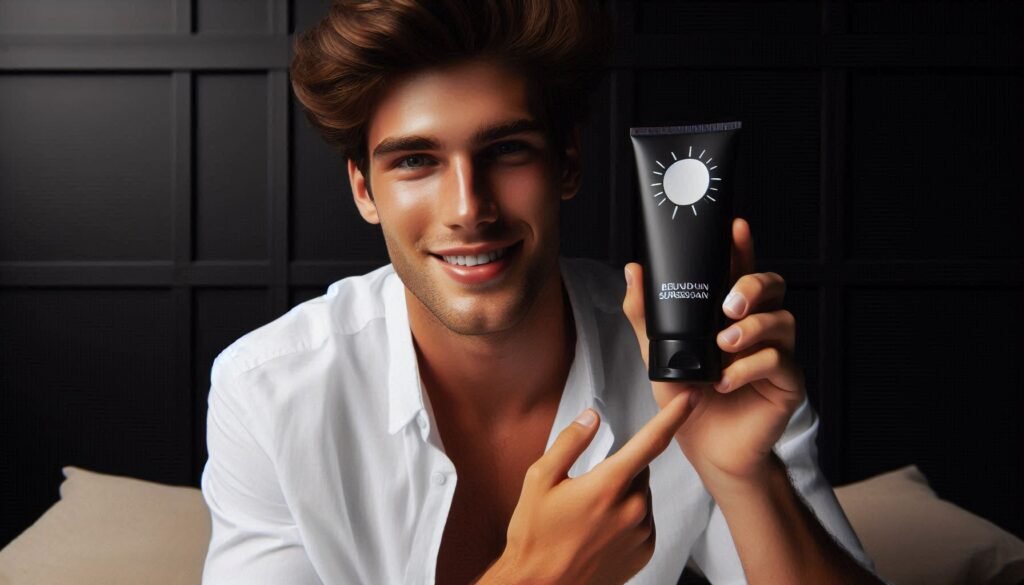
Choosing the right sunscreen involves considering several factors. Here are the key points to keep in mind:
a. Broad-Spectrum Protection
Look for a sunscreen that offers broad-spectrum protection, meaning it protects against both UVA and UVB rays.
- UVA Rays: These rays penetrate deeper into the skin, contributing to premature aging.
- UVB Rays: These rays are primarily responsible for sunburn.
b. SPF 30 Or Higher
For mature skin, choose a sunscreen with at least SPF 30 or higher. SPF (Sun Protection Factor) indicates how well the sunscreen can protect your skin from UVB rays.
- SPF 30: Blocks about 97% of UVB rays.
- SPF 50: Blocks about 98% of UVB rays, offering extra protection.
c. Hydrating Ingredients
Since mature skin tends to be drier, opt for sunscreens that include moisturizing ingredients. Some beneficial ingredients are:
- Hyaluronic Acid: Helps retain moisture in the skin.
- Glycerin: Acts as a humectant, attracting water to the skin.
- Ceramides: Help restore the skin barrier and lock in moisture.
- Antioxidants: Ingredients like vitamin C and green tea can help combat free radicals.
d. Texture And Finish
The texture of your sunscreen matters, especially for mature skin. Look for products that have a creamy or lotion-like consistency, which can provide extra hydration and a smoother finish. Avoid powder sunscreens, While convenient, they may not provide adequate hydration for mature skin.
e. Non-Comedogenic
If you have mature skin that is prone to breakouts, choose a non-comedogenic sunscreen. This means it won’t clog your pores, helping to prevent acne and blemishes.
f. Fragrance-Free
Fragrance can irritate mature skin, leading to redness and discomfort. Opt for fragrance-free sunscreens to minimize the risk of irritation.
4. What To Avoid In Sunscreen For Mature Skin
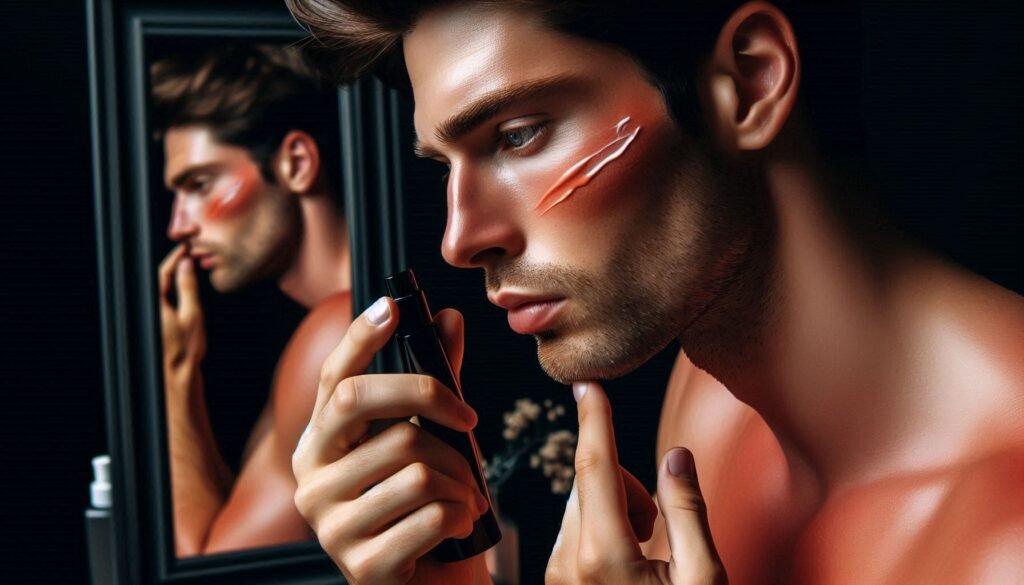
When choosing sunscreen for mature skin, avoid certain ingredients and formulations that can worsen skin issues or provide inadequate protection. Here are five considerations:
1. Alcohol-Based Formulas: Alcohol can dry out mature skin, stripping it of essential oils. Choose alcohol-free options to maintain hydration.
2. Fragrances: Fragrances can irritate sensitive skin and cause allergic reactions. Opt for fragrance-free products to minimize irritation.
3. Heavy, Greasy Formulas: Thick sunscreens can clog pores and lead to breakouts. Look for lightweight, non-comedogenic formulations.
4. Harsh Chemicals: Ingredients like oxybenzone can irritate mature skin. Choose gentle, mineral-based options with zinc oxide or titanium dioxide.
5. Low SPF Ratings: Sunscreens with SPF below 30 may not offer adequate protection. Always select a sunscreen with SPF 30 or higher for effective coverage.
| What To Avoid | Why They’re Bad |
|---|---|
| Alcohol-Based Formulas | Dries out and irritates mature skin |
| Fragrances | Can cause irritation or allergic reactions |
| Heavy, Greasy Formulas | Clogs pores and may cause breakouts |
| Harsh Chemicals (e.g., Oxybenzone) | Irritates sensitive, mature skin |
| Low SPF Ratings (below 30) | Provides inadequate sun protection |
By avoiding these common ingredients, you can better protect your mature skin from the harmful effects of sun exposure while keeping it hydrated and healthy.
5. Steps To Choose A Best Sunscreen For Mature Skin
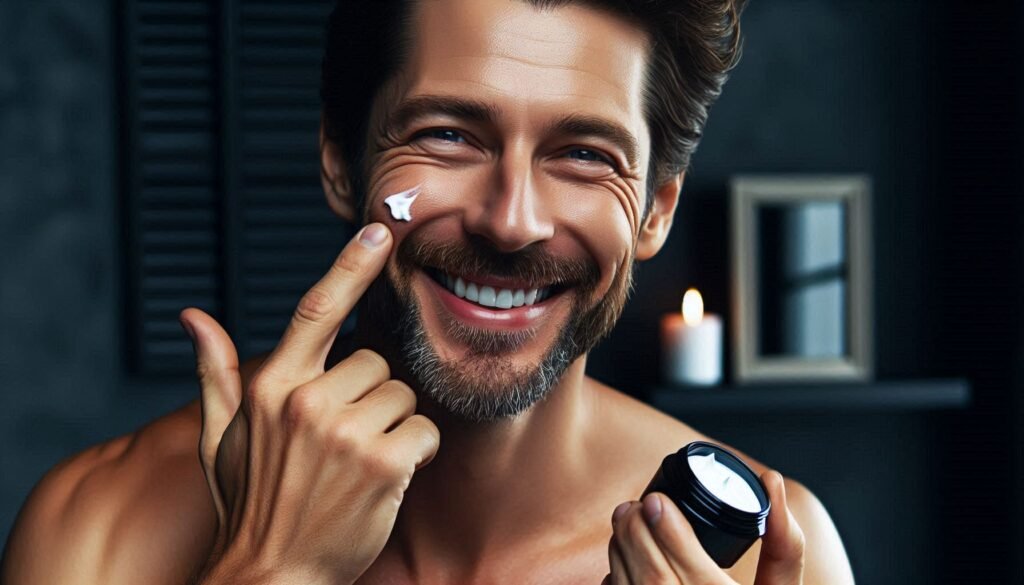
Step 1: Assess Your Skin’s Sensitivity
If your mature skin is prone to sensitivity, redness, or irritation, it’s best to choose a physical sunscreen with gentle, non-reactive ingredients like zinc oxide or titanium dioxide. These ingredients sit on the skin’s surface and provide effective UV protection without causing irritation.
Step 2: Look For Hydrating Ingredients
Mature skin often needs extra hydration, so it’s important to choose a sunscreen with moisture-boosting ingredients like hyaluronic acid, glycerin, or ceramides. These ingredients help keep your skin hydrated while shielding it from harmful UV rays.
Step 3: Choose The Right SPF
For adequate protection, opt for a sunscreen with SPF 30 or higher. If your skin is especially sensitive or you’re spending prolonged time outdoors, an SPF 50 sunscreen can offer stronger protection from sunburn and damage.
Step 4: Go For A Creamy Or Lotion
Mature skin tends to be drier, so a creamy or lotion-based sunscreen will not only provide UV protection but also give an extra layer of moisture. Avoid gel-based sunscreens, which may have a drying effect on the skin.
Step 5: Ensure It’s Fragrance-Free
Fragrances can cause unnecessary irritation, especially for dry or mature skin. Always look for fragrance-free formulas to minimize the risk of irritation and keep your skin calm and comfortable.
Step 6: Opt For Sunscreen With Added Anti-Aging Benefits
Many sunscreens now come with added benefits like antioxidants, vitamins, or anti-aging ingredients. These can help reduce fine lines, protect against free radicals, and improve skin elasticity, making them great options for mature skin.
6. How To Apply A Sunscreen On Mature Skin
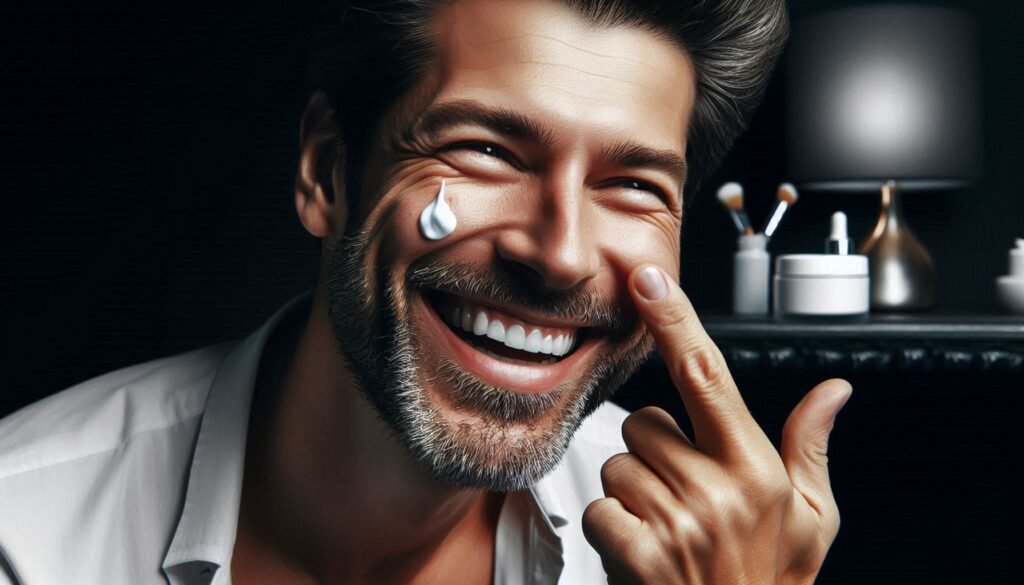
Choosing the right sunscreen is just the first step; applying it correctly is equally important. Here’s how to apply sunscreen effectively:
1. Cleanse Your Skin
Before applying sunscreen, ensure your skin is clean and dry. This allows for better absorption and effectiveness.
2. Apply After Moisturizing
If you use a moisturizer, apply it first, then follow with sunscreen. This helps lock in hydration.
3. Use The Right Amount
For your face, use about a nickel-sized amount of sunscreen. For your entire body, you should use about one ounce (the size of a shot glass) to ensure full coverage.
4. Reapply Regularly
Reapply your sunscreen every 2 hours, or more often if you are sweating or swimming. This helps maintain protection throughout the day.
5. Don’t Forget Common Areas
Be sure to apply sunscreen to often-missed areas like the ears, neck, and hands.
7. Top 5 Sunscreens For Mature Skin
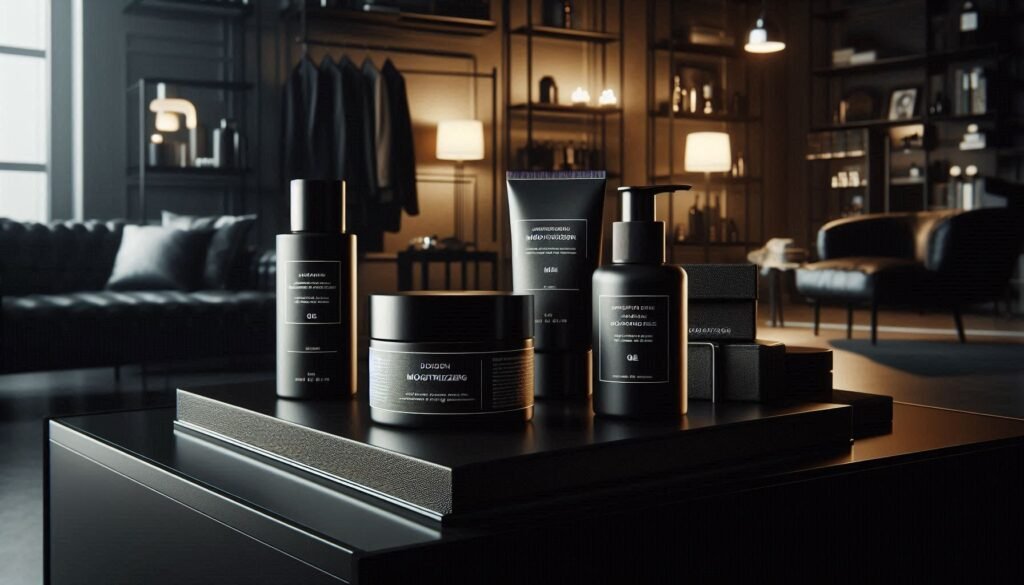
Here are some top-rated sunscreens that cater specifically to the needs of mature skin:
1. EltaMD UV Clear Broad-Spectrum SPF 46
Formulated with niacinamide, this sunscreen calms and protects sensitive skin while providing hydration.
2. Neutrogena Hydro Boost Water Gel Lotion SPF 30
Contains hyaluronic acid for hydration and provides a lightweight, non-greasy finish.
3. La Roche-Posay Anthelios Melt-in Milk Sunscreen SPF 60
A hydrating formula with a blend of antioxidants, perfect for protecting and nourishing mature skin.
4. CeraVe Hydrating Mineral Sunscreen SPF 30
Contains ceramides and niacinamide for moisture and barrier support, ideal for dry, mature skin.
5. Supergoop! Unseen Sunscreen SPF 40
A weightless formula that leaves a velvety finish, making it perfect for everyday use under makeup.
Conclusion
Choosing the right sunscreen for mature skin is essential to protect against UV damage while keeping your skin hydrated and healthy. Look for broad-spectrum protection, a high SPF, and hydrating ingredients. Remember to apply your sunscreen correctly and reapply it regularly for the best results.
Taking care of your skin as it matures is crucial, and using sunscreen is one of the most effective ways to maintain a youthful, radiant appearance. With the right sunscreen, you can enjoy the outdoors while keeping your skin safe and healthy.
FAQs
So You have gotten all the answers about how to choose a sunscreen for mature skin, or how to choose a sunscreen for mature skin for men, or how to choose a sunscreen for mature skin that suits your face…
Like This Also Read- How To Choose A Moisturizer For Mature Skin: A Complete Guide









